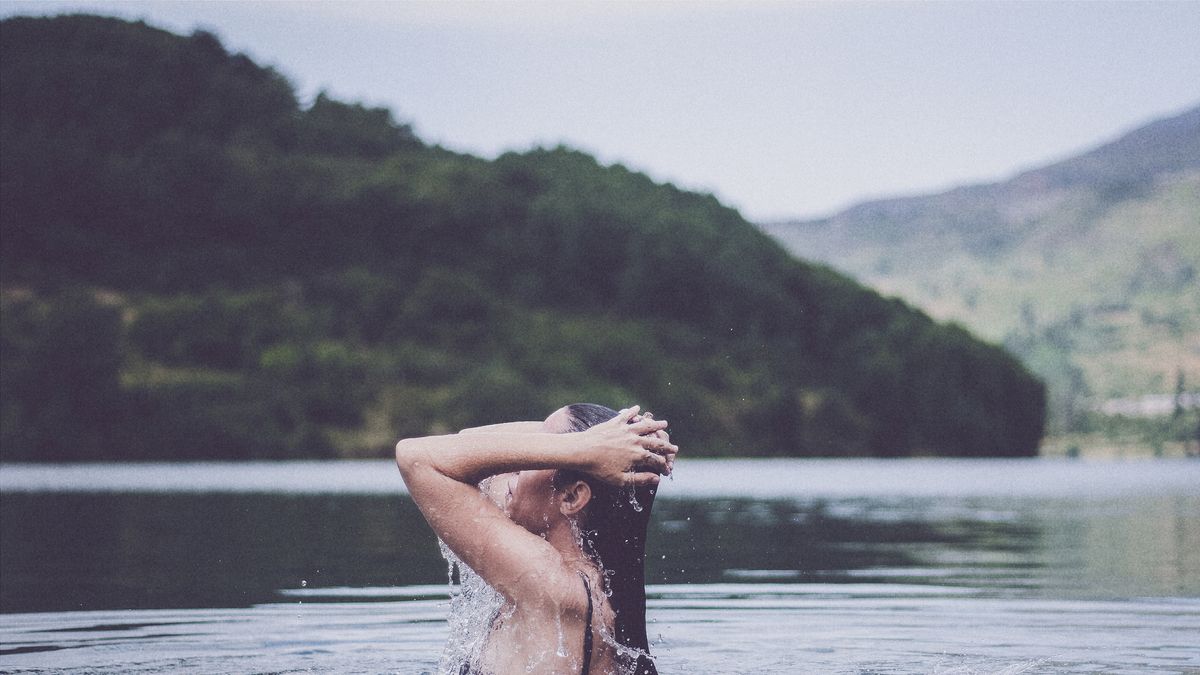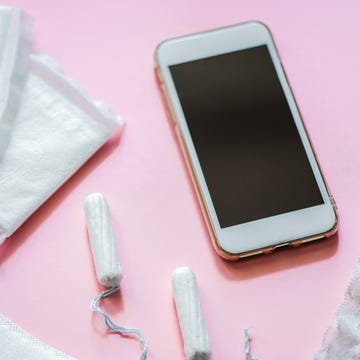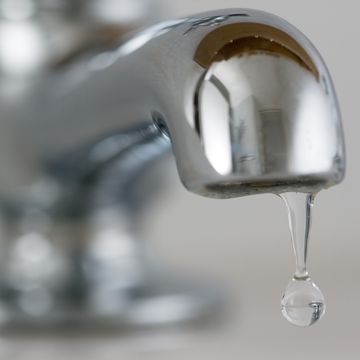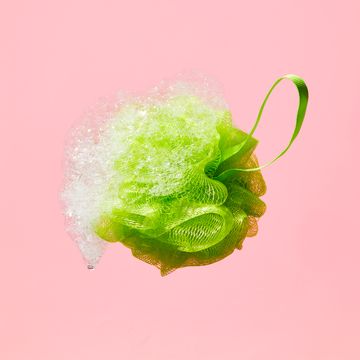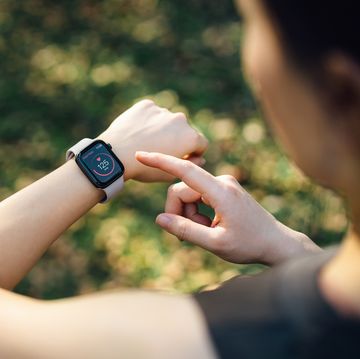Truth: Having a period also means you need to sift through quite a few period myths to find out what's true and what's total BS. Getting pregnant on your period, for example, can totally happen, while syncing up with your friends is more of a numbers game than a seal of sisterhood.
One period rumor that just keeps spreading? The idea that your flow stops if you're in water. Hey, that would be pretty nice in the warm months when you're swimming. But is there *any* truth to that? We asked the pros (not to mention a few other period Qs you've def wondered, too).
So...does your period actually stop in water? Even just a little?
First, let it be known that water itself will never make your period disappear. “It doesn’t matter if you’re in water or on the top of a mountain or in a ditch, your period still comes,” says Michele Haughton, MD, an ob-gyn at Weill Cornell Medicine and NewYork-Presbyterian.
Basically, barring any medical problems like hormonal disorders that can make you skip periods, your uterus will keep on shedding its lining whether you dive into the ocean or not, says Dr. Haughton. So, spending a week in your bathtub isn’t an effective way to skip out on your monthly visit. Womp.
But getting into the water can make it seem like your period goes away. That's all thanks to the pressure of the water surrounding your vagina—it can counteract the force of gravity that helps blood flow out of your body. There’s no biological magic going on here, it’s all physics. “When you’re in water there’s some opposite pressure happening,” says Dr. Haughton.
Think back to your high school physics class for a sec: You may remember the word buoyancy. Buoyancy, also known as “upthrust,” is the upward force a liquid exerts to counter the weight of an object (this is part of the reason that certain things float and others don’t). “Water has way more resistance than air,” says Dr. Haughton. “So water can counteract the blood flowing out of the vagina.”
Essentially, the water doesn't make your period stop, so to speak, but it can block the exit.
What if I do bleed in water...would people be able to see it? And would it attract sharks?
Nope and nope! Those are only myths. If you’re planning to get into the bathtub or go swimming without using a tampon or menstrual cup, rest assured that there will be no red, bloody trail behind you, says Dr. Haughton.
“Most women bleed only 60 milliliters (about three to four tablespoons) over five whole days,” says Dr. Haughton. Even if you’re free-flowing into the pool for five hours, there’s no way that water is going to turn into the Red Sea with the amount of blood coming out of your body. Even a whole pool full of people on their periods wouldn’t give the water even the tiniest pink tinge.
And there’s absolutely no chance that this tiny amount of menstrual blood will attract every shark in the ocean (or even just one of them), so let’s put that theory to rest right now. “Whenever I hear the shark myth I think, ‘How much do you people think you’re bleeding?’ It’s not like you’re waving around a bloody arm,” says Dr. Haughton. (Yep, she tells it like it is.)
So does that mean I don't need to wear tampons (or menstrual cups) in water?
Even if your period tends to be light, tampons and menstrual cups can save you when you exit the water. “The second you come out of the water your period will start flowing again,” says Dr. Haughton. “And then you could have a stain on your bathing suit.”
They also come in handy if you tend to have a lot of blood clots (there's no guarantee that water pressure will counteract an actual clot, versus drops of blood).
What's the best period protection for swimming?
While pads and panty liners won't help you in the water, you have a few period protection options when it comes to swimming: tampons, menstrual cups, and menstrual discs.
When in comes to tampons, you want to pick the size and protection level that will make you feel comfortable, but with the lowest absorption possible. Higher absorbency tampons have been linked to an increased risk for toxic shock syndrome (TSS)—a bacterial infection that can be deadly.
“It’s important to avoid leaving tampons in for more than eight hours,” says Gianni Rodriguez-Ayala, MD, who works in obstetrics and gynecology at Northwell Health. “Selecting the right tampon for your particular body and flow can make it easier to avoid habits that could lead to TSS.” Whether you want a more traditional tampon, or the organic variety, is up to you.
If you're worried about TSS or just find tampons uncomfortable, a menstrual cup or disc can be a great option (you can leave 'em in longer too). If you're new to reusable period protection like cups and discs, use this handy guide to learn how to insert and remove them.
Another option? Period-proof swimwear. With a similar construction to period-proof underwear, period-proof swimwear can help you avoid any leaks or stains when you're menstruating. Brands like Ruby Love offer cute options that can act as your sole protection or as backup to a tampon or cup.
No matter what, don't let your period stop you from enjoying a swim or a day at the beach.
Being active can actually help counteract the stuff that makes periods suck, like cramps and bloating.
Basically, a decent sweat session cranks up the production of mood-boosting endorphins, which can actually act as a natural pain reliever for cramps, says Mary Jane Minkin, MD, clinical professor of obstetrics, gynecology and reproductive sciences at Yale School of Medicine. Even better: Exercise can also help prevent period cramps (or at least lessen them when they come along). So swimming on or near your period is totally something you should be doing.
The bottom line: No, your period doesn't magically stop in the water, but water pressure can prevent your flow from coming out. It's still wise to use a tampon or menstrual cup to avoid leaks as you come out of the water.
